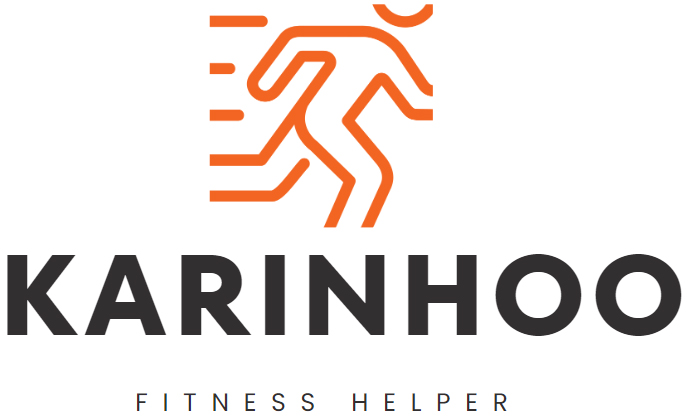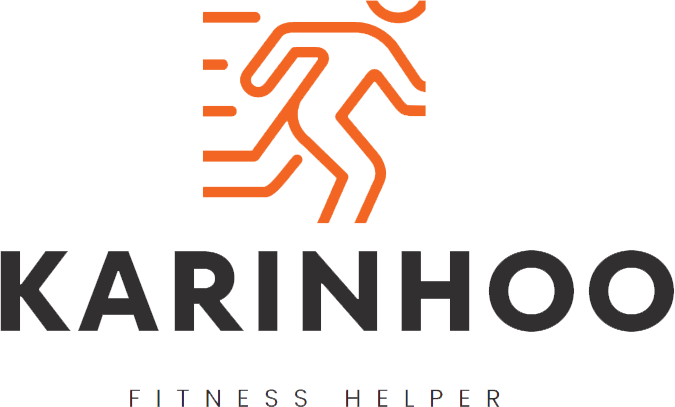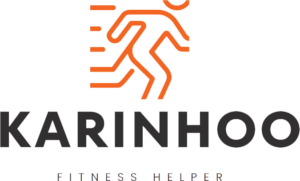The Benefits of Running for Fat Loss
Running is not only a great exercise for cardiovascular health and endurance, but it is also an effective way to fuel fat loss. When coupled with a healthy diet, running can help you shed those extra pounds and achieve your weight loss goals. In this article, we will explore the connection between running and a healthy diet, and how you can optimize your nutrition to fuel fat loss while running.
Running is a high-intensity aerobic activity that helps you burn a significant amount of calories. As you run, your body utilizes stored fat as a source of energy, leading to fat loss over time. running into your fitness routine can boost your metabolism and increase your overall calorie burn throughout the day, making it an excellent choice for weight loss.
In addition to burning calories during your runs, running also helps to increase your muscle mass. When you build lean muscle through running, your body becomes more efficient at burning calories even at rest. This increased metabolic rate can contribute to ongoing fat loss, even when you are not active. Therefore, running can help you build a slim and toned physique.
Apart from its fat-burning effects, running offers numerous other benefits for weight loss. It helps reduce stress levels and promotes the production of endorphins, which can curb emotional eating and prevent weight gain. Furthermore, it improves insulin sensitivity, which helps regulate blood sugar levels and prevents the excess storage of body fat.
While running is an excellent way to fuel fat loss, it is crucial to pair it with a healthy diet to maximize results. Eating a well-balanced diet rich in whole foods, lean proteins, healthy fats, and complex carbohydrates can provide the necessary nutrients to support your running routine and promote fat loss. Additionally, staying adequately hydrated is essential for optimal performance and maintaining a healthy weight.
To support your running and fat loss goals, focus on consuming nutrient-dense foods that provide sustained energy. Prioritize whole grains, fruits, vegetables, and lean sources of protein such as chicken, fish, and tofu. Incorporate healthy fats from sources like avocados, nuts, and olive oil. These foods will provide you with the necessary nutrients to fuel your workouts and aid in post-workout recovery.
Running is a powerful tool for fueling fat loss when combined with a healthy diet. It helps burn calories, build lean muscle, reduce stress, and improve insulin sensitivity. By choosing a nutrient-rich diet and staying properly hydrated, you can optimize your running performance and achieve your weight loss goals. So, lace up your running shoes, fill your plate with nutritious foods, and embark on a journey to a healthier, fitter you.
The Importance of Proper Nutrition for Runners
When it comes to maximizing your running performance and achieving your fat loss goals, exercise alone is not enough. A well-balanced and nutritious diet is crucial for fueling your runs and supporting your body’s needs. Proper nutrition provides the energy, nutrients, and recovery support necessary for optimal performance and fat loss. By understanding the connection between running and a healthy diet, you can make informed choices that will enhance your training and help you reach your fitness goals.
One of the key nutritional needs for runners is carbohydrates. They serve as the main source of energy during exercise, especially for high-intensity activities like running. Carbohydrates are stored as glycogen in the muscles, which is then used as fuel during exercise. To ensure adequate glycogen stores, include complex carbohydrates such as whole grains, fruits, and vegetables in your diet. These provide a steady release of energy and help sustain your efforts during challenging workouts or long-distance runs.
In addition to carbohydrates, protein is essential for repairing and building muscles. Running places stress on your muscles, causing micro-tears that need to be repaired for growth and recovery. Including protein-rich foods such as lean meats, fish, beans, and dairy products in your meals and snacks can aid in muscle repair and promote a faster recovery after intense workouts. Aim for a combination of carbohydrates and protein in your post-run meals to replenish glycogen stores and support muscle repair.
Another important aspect of a healthy diet for runners is the consumption of healthy fats. While it may seem counterintuitive, including good fats in your diet can actually aid in fat loss. Healthy fats, like those found in avocados, nuts, seeds, and olive oil, provide essential nutrients and help you feel satiated. They also support the absorption of fat-soluble vitamins and promote a healthy hormonal balance. However, it is important to consume healthy fats in moderation, as they are higher in calories than carbohydrates and protein.
In addition to carbohydrates, protein, and healthy fats, proper hydration is vital for runners. Hydration during exercise can help prevent fatigue, improve performance, and aid in weight loss. Aim to drink water before, during, and after your runs to maintain optimal hydration levels. The exact amount of water needed varies depending on factors such as intensity, duration, and weather conditions, so it’s important to listen to your body’s cues and drink accordingly.
The connection between running and a healthy diet is undeniable. By fueling your body with the right nutrients, you can optimize your fat loss efforts and improve your running performance. Incorporate a variety of complex carbohydrates, lean proteins, healthy fats, and adequate hydration into your diet to support your training and recovery. Remember, a holistic approach that combines both exercise and proper nutrition is key to achieving your fat loss goals and maintaining overall health and well-being.
Fueling Your Runs: What to Eat Before Your Run
As a runner, it’s important to fuel your body properly before heading out for a run. The right pre-run nutrition can provide you with the energy you need to perform at your best and help optimize fat loss.
A balanced meal or snack should consist of carbohydrates, protein, and a small amount of healthy fats. Carbohydrates are the body’s main source of fuel and are crucial for providing energy during exercise. Opt for complex carbohydrates such as whole grains, fruits, and vegetables, as they provide a slow and steady release of energy.
Protein is essential for muscle repair and growth, which is especially important for endurance runners. Include sources of lean protein like chicken, fish, tofu, or beans in your pre-run meal or snack. These will help prevent muscle breakdown and aid in recovery.
Adding some healthy fats to your pre-run meal can provide you with sustained energy. Nuts, seeds, avocados, or a drizzle of olive oil are excellent sources of healthy fats that can keep you feeling satisfied and fuel your run.
Timing is crucial when it comes to pre-run nutrition. You should aim to have a meal or snack at least 1-2 hours before your run to allow for proper digestion. This will minimize the risk of indigestion or discomfort during your run. However, if you’re short on time or prefer to run on an empty stomach, a small snack 30 minutes to one hour before your run can still provide a quick energy boost.
Here are a few pre-run meal and snack ideas to get you started:
- A bowl of oatmeal topped with fresh berries and a tablespoon of almond butter
- Whole grain toast with mashed avocado and a poached egg
- Greek yogurt with sliced banana and a sprinkling of granola
- A fruit smoothie made with almond milk, spinach, and a scoop of protein powder
Remember, everyone’s nutritional needs are different, so it’s important to listen to your body and experiment with different pre-run meals and snacks to find what works best for you. Stay hydrated by drinking water leading up to your run, and avoid heavy or greasy foods that can lead to discomfort during exercise.
By fueling your runs with the right combination of carbohydrates, protein, and healthy fats, you’ll be able to optimize fat loss and perform at your best. Remember to experiment with different foods and timing to find what works best for you and enjoy the benefits of a well-fueled run.
The Importance of Post-Run Nutrition for Recovery and Optimal Performance
Proper nutrition plays a crucial role in any athlete’s training routine, especially for long-distance runners. After a grueling run, your body needs essential nutrients to refuel, repair, and recover. Post-run nutrition is a key aspect of your diet that can optimize your performance and support fat loss goals.
After an intense workout, your body is in a state of depletion. It’s essential to replenish glycogen stores, repair muscle damage, and kickstart the recovery process. One of the most critical nutrients to consume after a run is carbohydrates. These macronutrients provide the necessary energy to restore glycogen levels in your muscles, ensuring they’re ready for your next training session.
Including high-quality carbohydrates in your post-run meal is crucial. Opt for complex carbs like whole grains, sweet potatoes, or quinoa, as they release energy slowly and keep your blood sugar levels stable. Aim for a carbohydrate intake of around 0.5-0.8 grams per pound of body weight within 30 minutes to an hour post-run.
In addition to carbohydrates, protein is another essential macronutrient for optimal recovery. Protein helps repair damaged muscle tissues and promotes muscle growth. Including a source of lean protein in your post-run meal is vital. Options such as lean meats, poultry, fish, eggs, or plant-based proteins like tofu or beans provide the necessary amino acids your body needs to rebuild and recover.
To enhance the recovery process, consider including anti-inflammatory foods in your post-run meal. Foods rich in omega-3 fatty acids, such as salmon, walnuts, or chia seeds, can help reduce exercise-induced inflammation. Including fresh fruits and vegetables rich in antioxidants, like berries, spinach, or kale, can also aid in reducing inflammation and promote recovery.
Hydration is another crucial component of post-run nutrition. During a run, your body loses fluids through sweat, which must be replenished to maintain optimal function. Make sure to rehydrate by drinking water, electrolyte-rich beverages, or consuming hydrating foods like watermelon or cucumber.
Properly fueling your body with the right nutrients after a run is essential for recovery and optimal performance. Remember to consume a balanced meal that includes carbohydrates, protein, and anti-inflammatory foods. Stay hydrated and listen to your body’s signals to ensure you’re giving it the necessary fuel it needs to support your fat loss goals and long-distance running endeavors.
Optimal Diet for Long-Distance Runners
When it comes to long-distance running, a healthy diet plays a crucial role in fueling performance and supporting overall well-being. Proper nutrition can help optimize recovery, enhance endurance, and promote fat loss. Here, we explore the key components of an optimal diet for long-distance runners.
Nutrient-Rich Foods
Long-distance runners require a wide range of nutrients to support their training and recovery. nutrient-dense foods into their diet is essential. These include fruits, vegetables, lean proteins, whole grains, and healthy fats. Fruits and vegetables provide a wide array of vitamins, minerals, and antioxidants, which aid in recovery and support immune function. Lean proteins, such as chicken, fish, and tofu, supply essential amino acids necessary for muscle repair and growth. Whole grains, like quinoa and brown rice, offer complex carbohydrates that provide sustained energy during long runs. Healthy fats, found in avocados, nuts, and olive oil, are important for joint health and hormone production.
Carbohydrate Loading
One of the key aspects of fueling for long-distance running is carbohydrate loading. This strategy involves increasing carbohydrate intake in the days leading up to a long run or race to maximize glycogen stores in the muscles. Glycogen is the primary fuel source during endurance exercise, and depleting these stores can lead to fatigue. Including foods like pasta, rice, potatoes, and oats in the pre-run meal plan can help ensure adequate glycogen levels, supporting optimal performance.
Hydration
Staying hydrated is essential for long-distance runners to maintain performance and prevent dehydration. Drinking enough water throughout the day and especially during workouts is crucial. The exact amount of water needed varies depending on factors such as body weight, exercise intensity, and weather conditions. It is recommended to drink at least 8-12 cups (64-96 ounces) of water daily. Electrolyte-rich beverages, such as sports drinks or coconut water, can also be beneficial during longer runs to replenish electrolytes lost through sweat.
Timing of Meals
The timing of meals is important for long-distance runners to optimize performance and avoid discomfort during exercise. It is recommended to have a balanced meal containing carbohydrates, proteins, and fats 2-3 hours before a long run. This allows sufficient time for digestion and helps prevent issues like stomach cramps or digestive distress. For runs lasting less than an hour, a small snack with easily digestible carbohydrates, such as a banana or energy bar, can be consumed 30-60 minutes before the run to provide an extra boost of energy.
Recovery Nutrition
After a long run, proper recovery nutrition is essential to replenish glycogen stores, repair damaged muscle tissue, and optimize future performance. Consuming a combination of carbohydrates and protein within 30 minutes of finishing a run can kickstart the recovery process. This can be in the form of a post-run smoothie, a protein shake, or a snack that includes both protein and carbohydrates. Including foods such as Greek yogurt, nuts, berries, or a turkey sandwich can provide the necessary nutrients for recovery.
A well-balanced diet rich in nutrient-dense foods, adequate carbohydrates, proper hydration, and timely meals is essential for long-distance runners. By fueling their bodies with the right nutrients, runners can optimize their performance, enhance recovery, and support long-term fat loss goals. Remember to consult with a healthcare professional or registered dietitian for personalized nutrition recommendations tailored to your individual needs. Happy running!
Conclusion
Fueling Fat Loss: The Connection Between Running and a Healthy Diet
Running can be an effective strategy for fat loss, but it is crucial to fuel your body properly with a healthy diet to maximize its benefits. By understanding the key nutritional needs of runners and adopting an optimal diet, you can enhance your performance, promote fat loss, and support overall health and well-being.
One of the primary benefits of running for fat loss is its ability to burn calories. By engaging in regular running exercises, you can create a calorie deficit, which is essential for weight loss. Furthermore, running helps to increase metabolism, allowing your body to continue burning calories even after your workout. Combined with a healthy diet, running can lead to significant fat loss and improved body composition.
To achieve the best results, it is crucial to fuel your runs by understanding your key nutritional needs. Carbohydrates are the primary energy source for running, so it is important to consume adequate amounts before and during your runs. Complex carbohydrates, such as whole grains, fruits, and vegetables, provide a sustained energy release and should make up the bulk of your diet. Additionally, proteins and healthy fats play crucial roles in muscle recovery and overall health.
Pre-run nutrition is essential to ensure you have enough energy to perform at your best. Consuming a balanced meal or snack containing carbohydrates, proteins, and fats a few hours before your run can provide the necessary fuel. Focus on easily digestible foods that will not cause discomfort during your workout.
Post-run nutrition is equally important to replenish your body’s energy stores and aid in muscle recovery. Consuming a combination of carbohydrates and proteins within the first 30 minutes after your run can optimize recovery and enhance muscle protein synthesis. Additionally, staying hydrated by drinking plenty of water and electrolyte-rich fluids is essential for proper recovery and cellular function.
For long-distance runners, maintaining an optimal diet is crucial to support their training and performance. This includes consuming a variety of nutrient-dense foods, such as fruits, vegetables, whole grains, lean proteins, and healthy fats. Incorporate foods rich in antioxidants to reduce inflammation and support immune function. Additionally, vitamin and mineral supplementation may be necessary for individuals with specific deficiencies or to support intense training demands.
By incorporating these nutritional strategies into your running routine, you can maximize fat loss, improve your performance, and support overall health. Properly fueling your runs through a balanced diet not only enhances your exercise performance but also increases your stamina and endurance. Make sure to consult with a registered dietitian or nutritionist who can provide personalized guidance based on your specific needs and goals.
Fueling your body with the right nutrients is the key to unlocking the connection between running and fat loss. By adopting a healthy diet that prioritizes the right balance of macronutrients and micronutrients, you can optimize your body’s ability to shed fat while improving your running performance. Remember, consistency is key, so make running and healthy eating integral parts of your lifestyle for long-term fat loss success.






